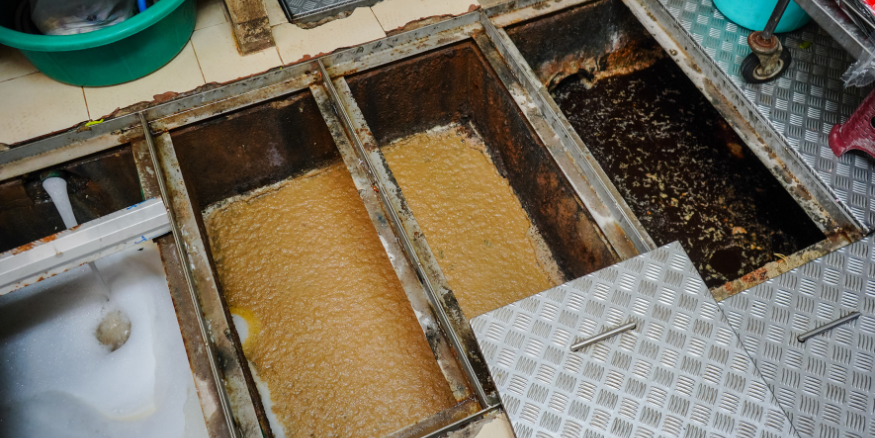Grease traps are devices used to capture fats, oils, and grease (FOG) from wastewater generated in commercial kitchens. They are important because they prevent FOG from entering the sewer system, where they can cause blockages, backups, and other issues.
Traditional grease traps have been used for many years, but they have limitations in terms of environmental impact. They can only capture FOG, which means other organic waste, such as food scraps, can still enter the sewer system. Additionally, traditional grease traps require frequent cleaning and maintenance, which can be costly and time-consuming.
Grease traps with interceptor baskets are an innovative solution that offers several benefits for the environment. These devices capture not only FOG but also food scraps and other solids, which reduces organic waste entering the sewer system. Interceptor baskets also require less frequent cleaning, which saves time, money, and energy. By visiting the manufacturer web site, you can make a more informed decision about your purchase and have peace of mind knowing you have access to reliable information directly from the source.
Environmental Benefits of Grease Traps with Interceptor Baskets
Interceptor baskets are designed to capture food waste and other solids, in addition to FOG. This means that less organic waste enters the sewer system, reducing the risk of blockages, backups, and other issues.
When FOG enters the sewer system, it can cause issues for water treatment facilities and can even end up in waterways. Grease traps with interceptor baskets prevent FOG and other harmful substances from entering the environment, which protects local ecosystems.
Water treatment facilities have to treat the wastewater that enters their system, which can be costly and energy-intensive. Grease traps with interceptor baskets reduce the amount of organic waste entering the system, which can lower the maintenance and energy costs for treatment facilities.
How Interceptor Baskets Work
Interceptor baskets are installed in the grease trap, and they capture food waste and other solids before they enter the trap. The baskets are easy to remove and clean, which reduces the need for frequent maintenance.
Traditional grease traps only capture FOG, which means that other organic waste can still enter the sewer system. Interceptor baskets capture both FOG and food waste, which reduces organic waste entering the system.
Interceptor baskets are effective at capturing food waste and other solids, which reduces the risk of blockages and backups in the sewer system. They are also easy to clean, which reduces the need for frequent maintenance.
Improved Sustainability
Traditional grease traps require frequent cleaning and maintenance, which can be energy-intensive and costly. Interceptor baskets require less frequent cleaning and maintenance, which reduces the carbon footprint of commercial kitchens.
Manufacturers of grease traps with interceptor baskets are using environmentally friendly materials in their manufacturing process. This reduces the environmental impact of the production process and ensures that the products are sustainable.
Contribution to Sustainable Practices in the Food Service Industry
Grease traps with interceptor baskets are part of a growing trend towards sustainable practices in the food service industry. By choosing environmentally friendly products, businesses can reduce their environmental impact and contribute to a more sustainable future.
Benefits for Food Service Businesses
In addition to the environmental benefits, grease traps with interceptor baskets offer several advantages for food service businesses. Compliance with environmental regulations and requirements is a major concern for businesses, and using an effective grease trap system can help ensure compliance and reduce the risk of fines and penalties for non-compliance.
Furthermore, adopting environmentally conscious practices can enhance a business’s reputation and attract customers who prioritize sustainability. By demonstrating a commitment to reducing their environmental impact, businesses can gain a competitive edge and establish themselves as responsible and ethical.
Finally, grease traps with interceptor baskets can help businesses save money on maintenance and repair costs. Because these systems are designed to capture food waste and other solids, they require less frequent cleaning and maintenance than traditional grease traps. This can translate to lower costs and reduced downtime for businesses, allowing them to focus on their core operations and improve their bottom line.
Choosing the Right Grease Trap with Interceptor Baskets
When selecting a grease trap with interceptor baskets, there are several factors to consider. One important consideration is sizing and capacity, which should be based on the specific needs of the kitchen. Factors such as the size of the kitchen, the volume of food waste generated, and the frequency of use should all be taken into account.
Conclusion
Grease traps with interceptor baskets provide commercial kitchens with major environmental advantages in addition to benefits for enterprises that provide food services. By preventing dangerous compounds from entering rivers and organic waste from clogging sewer systems, these devices can also help treatment facilities spend less money on maintenance and energy. They may also help businesses improve their reputation, abide by environmental rules, and save money on maintenance and repair expenses.
Grease traps with interceptor baskets are anticipated to spread as the food service sector continues to place a high priority on environmental responsibility. Businesses may reap these advantages and help create a more sustainable future by choosing the proper product and provider.
